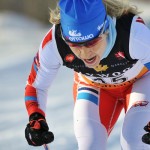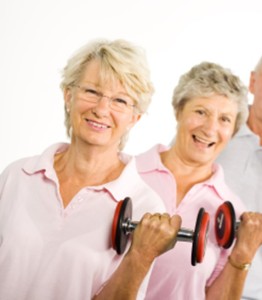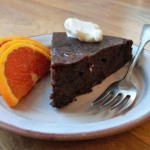This week, read about event time and athletic performance, Isagenix under the microscope, urban design and health, coffee horror, how strength training helps weight loss, the limits of precision medicine, why your workouts should be high intensity, and more.
 Event Timing Can Affect
Event Timing Can Affect
an Athlete’s Performance
Are you a late-riser who hates early morning races? Seems your biological clock might be affecting your performance. Although earlier research suggested that all athletes are their fastest in the evening, researchers from the University of Birmingham conducted a small study that suggested that performance varies by an athlete’s “circadian phenotype.” They classified athletes by their wake times as follows: early risers = 7 a.m. weekdays / 7:30 weekends; intermediate risers = 8 a.m. weekdays / 9:10 on weekends; and late risers = 9:30 weekdays / 11 weekends).
Here are the best times for performance based on your typical wake time:
- Early risers=midday
- Intermediate risers=afternoon
- Late risers=evening.
- Early morning (7 a.m.) was bad for all groups.
(Gina Kolata, New York Times) reporting on Current Biology, 2015).
This is preliminary research, but suggests that athletes might want to use strategies to coax their biological clocks to perform best at race time. Adjusting light, activity, and meal times in the days before important races might shift your clock and help you achieve a better performance.
Isagenix Under the Microscope
Isagenix is an expensive diet program involving shakes, bars, and herbal supplements that claims its products will help you lose weight, have more energy, and make money (the money part comes if you decide to sell it – Isagenix uses a multilevel marketing distribution, with encouraged promotion via social media or email). The marketing relies a lot on personal testimonials like “I used Isagenix and lost weight,” before and after pictures, and you may recognize some of the media from this Isagenix Social Media Gallery, available to help marketers sell the product. The products boasts “nutritional cleansing,” “detox,” and “fat burning,” and the weight loss program is essentially a low-calorie diet that might promote short-term weight loss (like any low calorie diet would). This week Australia’s CHOICE Magazine reviewed isagenix claims, and concluded that the product is big on hype but slim on evidence. You’ll find another evidence-based review of Isagenix here.
Research has repeatedly shown that weight loss that relies on meal replacements and low calorie diets can be difficult to maintain, one reason being that it doesn’t develop sustainable habits. Also, why spend a whole lot of money on processed low-calorie shakes and questionable supplements when you can choose delicious real foods that are inexpensive, unprocessed, fit into regular daily habits, and have evidence-based health benefits?
Curious about a particular diet? Check out my diet reviews page here.
Coffee Horror
Here is a funny mock horror film produced by Egg studios of Nova Scotia to get people thinking about the environmental impact of K-Cups (in 2014, Keurig Green Mountain produced 9.8 billion K-Cups). (NPR)
More Links of Interest this Week:
Better urban design could add years to your life. Urban activists say cities need to design more walkable neighbourhoods, which would lead to health benefits. Many suburbs are designed to move automobiles, and are not a nice environment for walking or cycling: some experts describe such neighbourhoods as “obesogenic.” There is evidence that more walkable neighbourhoods can decrease child obesity. (CBC)
You can prevent age-related slowing of V˙O2 kinetics. Researchers at the University of Western, Ontario looked at V˙O2 kinetics profiles of young, middle-age, and older endurance-trained and untrained men. This is the first study to show that endurance training can prevent the declines in V˙O2 kinetics normally associated with aging. (Medicine & Science in Sports & Exercise: February 2015.)
 Why Your Workout Should Be High-Intensity (even if you aren’t an athlete). A look at the health benefits of high intensity interval training for nonathletes and patients with various conditions including stroke, diabetes, and Parkinsons’. (Jane Brody, New York Times).
Why Your Workout Should Be High-Intensity (even if you aren’t an athlete). A look at the health benefits of high intensity interval training for nonathletes and patients with various conditions including stroke, diabetes, and Parkinsons’. (Jane Brody, New York Times).
Is Walmart Making Us Fat? A new paper argues that food distribution methods that support cheap, widely available junk food has contributed to obesity epidemic. Looking at the economic variables related to calorie intake, the authors found that restaurant and supercenter/warehouse club densities were important factors. (Washington Post, reporting on NBER Working Paper No. 20892; January 2015)
Americans Believe in Science, but are at odds with scientists on major Issues. The “debate” over issues like climate change and vaccination puzzles many. Can evidence change people’s minds? A Pew Research Center report examined the opinions of the US public and scientists, and found that although many Americans (79%) are positive about science’s impact, they are at odds with scientists on major issues. (Scientific American reports on PEW Research Center report).
It seems like people believe in science, but some susceptible people just aren’t equiped to evaluate the entirety of the research. These days, it’s easy to find “experts” that support your side of the argument with some seemingly “convincing” science: the problem is – often these studies are cherry picked, out of context, and don’t take into account the body of research that doesn’t support the view – Wheat Belly, anyone?
The limits of precision medicine: ‘Moonshot’ Medicine Will Let Us Down. Personalized medicine seems promising, but as Micheal Joyner puts it “we almost certainly have more control over how much we exercise, eat, drink and smoke than we do over our genomes”. Seems money geared toward changing these behaviors in people would yield better public health, but isn’t as attractive. (Micheal Joyner, New York Times)
The science behind being cold. Hand & feet temps dictate comfort, and women’s hands are 3 degrees colder than men’s. (Time)
People Think Expensive Drugs Work Better. Study in Parkinson’s patients shows that when participants told drugs cost more (even it was a placebo), they performed better. (Time, reporting on Journal of Neurology, Jan 2015.)
 How Weight Training Can Help You Keep the Weight Off. A study in women shows that women who exercise (especially strength training) tend to move more throughout the day, which burns more calories and promotes weight loss. (Gretchen Reynolds, New York Times, reporting on Med Sci Sports Exerc. 2015 Jan 20).
How Weight Training Can Help You Keep the Weight Off. A study in women shows that women who exercise (especially strength training) tend to move more throughout the day, which burns more calories and promotes weight loss. (Gretchen Reynolds, New York Times, reporting on Med Sci Sports Exerc. 2015 Jan 20).
Food science students write an open letter to the Food Babe. This is excellent – looks like the next generation of food scientists is on the right track, and will hopefully help communication between scientists and the public.
How to Navigate the Maze of Temptation That Is Your Local Grocery Store. Good advice by Brad Stulberg (Outside).
Read this before you ever believe another guest on the Dr. Oz Show. Why is this show still on the air? (Julia Beluz, Vox.com)
New Recipe
 Flourless Chocolate Cake. Secret healthy ingredient – you’ll never guess!
Flourless Chocolate Cake. Secret healthy ingredient – you’ll never guess!